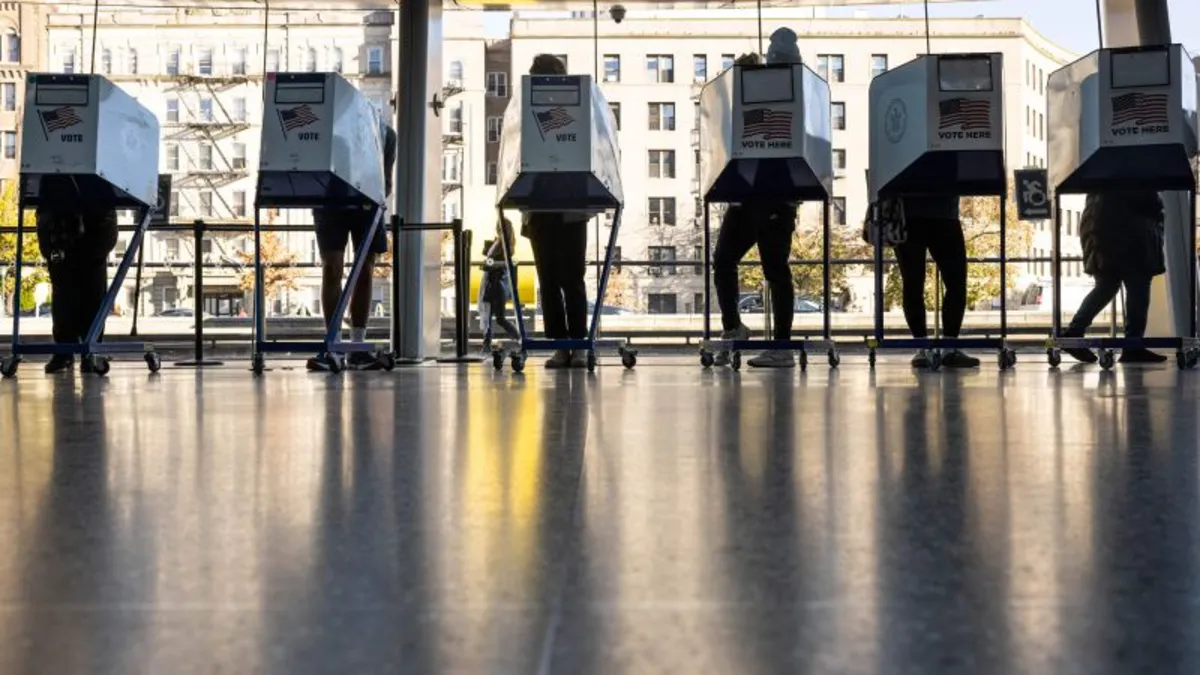
As the country gears up for the 2024 midterm elections, a new CNN poll conducted by SSRS reveals that the Democratic Party is holding a notable enthusiasm advantage. This comes amid declining approval ratings for former President Donald Trump, whose popularity has dipped further into negative territory. The political landscape in fall 2025 is markedly different from that of 2017, which preceded the Democrats' successful takeover of the US House during Trump's first term.
According to the poll, Democrats currently enjoy a 5-point advantage among registered voters in the generic congressional ballot. However, this margin falls short of the 11-point lead they held in polling a year prior to the 2018 midterms. Despite this advantage, favorable views of the Democratic Party remain near all-time lows, currently 8 points below where they stood in the fall of Trump's first year in office.
In the context of midterm elections, the public's view of the president often overshadows perceptions of the opposing party. Trump's approval rating has plummeted to 37%, marking the lowest point of his second term in CNN polling. This figure is strikingly similar to his 36% approval rating during the same timeframe of his first term. Additionally, Trump's disapproval rating has risen to 63%, the highest recorded across both terms, surpassing the 62% disapproval he faced when exiting office in January 2021.
Looking toward the upcoming midterms, Democrats seem to have an early edge. Currently, 47% of registered voters indicate they would vote for the Democratic candidate in their district, while 42% favor the Republican candidate. Notably, a greater percentage of voters—42%—have ruled out supporting a Republican compared to 35% who have done the same for a Democrat.
Moreover, 41% of voters express that their choice will send a message opposing Trump, almost double the 21% who aim to convey support for him. Among independents, the generic ballot leans favorably towards Democrats, with 44% supporting them versus 31% for Republicans. Additionally, registered Democrats and Democratic-leaning independents are significantly more motivated to vote, with 67% expressing extreme motivation compared to just 46% of Republican-aligned voters.
Among Democratic voters, those who prioritize the state of democracy as a top concern exhibit the highest motivation to vote, with 82% stating they are deeply motivated. This contrasts with 57% of those who prioritize the economy. Despite ongoing internal challenges regarding the party's image, the CNN poll indicates that Democratic-aligned voters maintain strong support for their candidates, with 93% of those with a negative view of the party still intending to vote for the Democratic candidate in their district.
Overall, Americans express significant dissatisfaction with the current state of the nation, with 68% believing that things are going poorly. Additionally, 72% of respondents view the economy as being in poor shape, with 47% citing the economy and cost of living as the top issues facing the country. Approximately 61% of Americans feel that Trump's policies have exacerbated economic conditions.
The sentiment towards the federal government shutdown is similarly negative, with 81% of respondents considering it a crisis or a major problem. Trump’s handling of the shutdown has drawn disapproval from 61% of the public, a sentiment that extends to congressional leadership from both parties, with 58% disapproving of their handling of the situation.
Moreover, a majority of Americans hold negative views about Trump’s performance in several key areas. About 56% feel his foreign policy decisions have harmed the United States' standing globally, while 57% believe he has overstepped with deportations of undocumented immigrants. The issue of democracy stands out for many, with 26% of Americans identifying it as the most pressing issue, especially among Democratic voters, of whom 45% share this view.
As the midterm elections draw closer, the political landscape remains dynamic. The CNN poll, conducted online and via phone from October 27 to 30 among a random sample of 1,245 adults (including 954 registered voters), suggests that the upcoming elections will be significantly influenced by voter sentiment towards both Trump and the Democratic Party. The margin of sampling error for the full sample is plus or minus 3.1 percentage points, and plus or minus 3.6 points for registered voters.